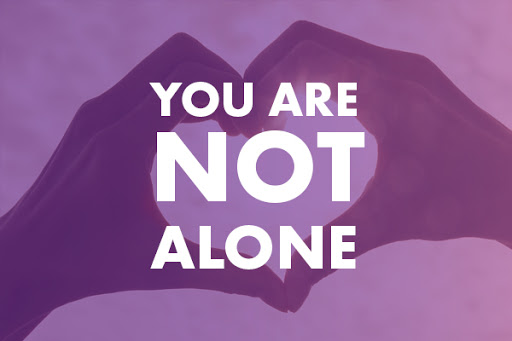May is Mental Health Awareness Month
Mental Health Month was established in 1949 to increase awareness of the importance of mental health and wellness in Americans’ lives and celebrate recovery from mental illness. Mental health is vital for a person’s overall health. Prevention works, treatment is effective, and people can recover.
Mental Health and Healthcare Workers
COVID-19 has presented healthcare professionals with unprecedented challenges. This has included caring for contagious, critically ill, and dying patients while also having their fear and concern for themselves, family, and friends. Along with the personal risk of acquiring the virus, healthcare professionals may also face stress on the job, leading to compassion fatigue, moral distress, and post-traumatic stress disorder. As healthcare workers and caregivers, we sometimes miss the signs that we need help too. The warning signs below may be a signal it is time to reach out for help:
- Feeling irritable or angry over things that previously wouldn’t bother you, or feeling more irritated or angry than usual.
- Feeling anxious, depressed, lonely, or constantly sad. Bad days seem to outweigh the good days.
- Reliving traumatic events
- Isolating yourself
- Experiencing compassion fatigue or burnout. The cost of caring may have stretched you thin, and you struggle to get through each shift.
- Struggling to sleep or oversleeping
- New or increased substance use
- Experiencing physical issues that impact you in unexpected ways: This could include digestive and/or appetite problems, increased aches and pain, or executive function and memory problems
- 1 in 5 U.S. adults experiences mental illness each year. Less than half get treatment
- 1 in 20 U.S. adults experiences serious mental illness each year. Less than two-thirds get treatment
- Suicide is the second leading cause of death among people aged 10-34.
- Lesbian, gay and bisexual youth are 4x more likely to attempt suicide than straight youth.
- Transgender adults are nearly 12x more likely to attempt suicide than the general population.
There are many ways for you to take care of your mental health. From self-care to therapy, finding what works best for you is what is important. COVID-19 has made many of the things we would do for ourselves more difficult and has also contributed to our stress, anxiety, and depression. Self-care looks different for everyone, and it is important to find what you need and enjoy. In addition, although self-care is not a cure for mental illnesses, understanding what causes or triggers your symptoms and what coping techniques work for you can help manage your mental health.
- Some self-care activities include:
- Get regular exercise.
- Eat healthy, regular meals, and stay hydrated.
- Make sleep a priority.
- Try a relaxing activity. Explore relaxation or wellness programs or apps, incorporating meditation, muscle relaxation, or breathing exercises. Schedule regular times for these and other healthy activities you enjoy, such as journaling.
- Set goals and priorities. Decide what must get done now and what can wait. Learn to say “no” to new tasks if you start to feel like you’re taking on too much. Try to be mindful of what you have accomplished at the end of the day, not what you have been unable to do.
- Practice gratitude. Remind yourself daily of things you are grateful for. Be specific. Write them down at night, or replay them in your mind.
- Focus on positivity. Identify and challenge your negative and unhelpful thoughts.
- Stay connected. Reach out to your friends or family members who can provide emotional support and practical help.
Mental health conditions are real, common, and treatable - and recovery is possible. There can be a lot of stigma around seeking help. Treating our mental health is equally important and no different than our physical health.
The Employee Assistance Plan is a confidential counseling service for employees and their eligible dependents. Trained professionals are available to assist with family, personal, work-related, and substance abuse issues. Services are available 24 hours a day, 7 days a week by calling 1-800-316-2796 or visiting Mutual of Omaha. EAP services are available at no cost and regardless of participation in other benefit programs. You also receive up to three in-person sessions with a counselor for short-term issues and one free 30-minute in-person consultation with a network lawyer per legal issue.
NAMI Helpline: 800-950-NAMI Or in a crisis, text "NAMI" to 741741
NYS COVID-19 Emotional Support Line/Reach Out: 844-863-9314
Response Crisis Hotline: 631-751-7500
Suffolk County Crisis Response – DASH: 631-952-3333
Suicide Prevention Lifeline: 800-273-8255


